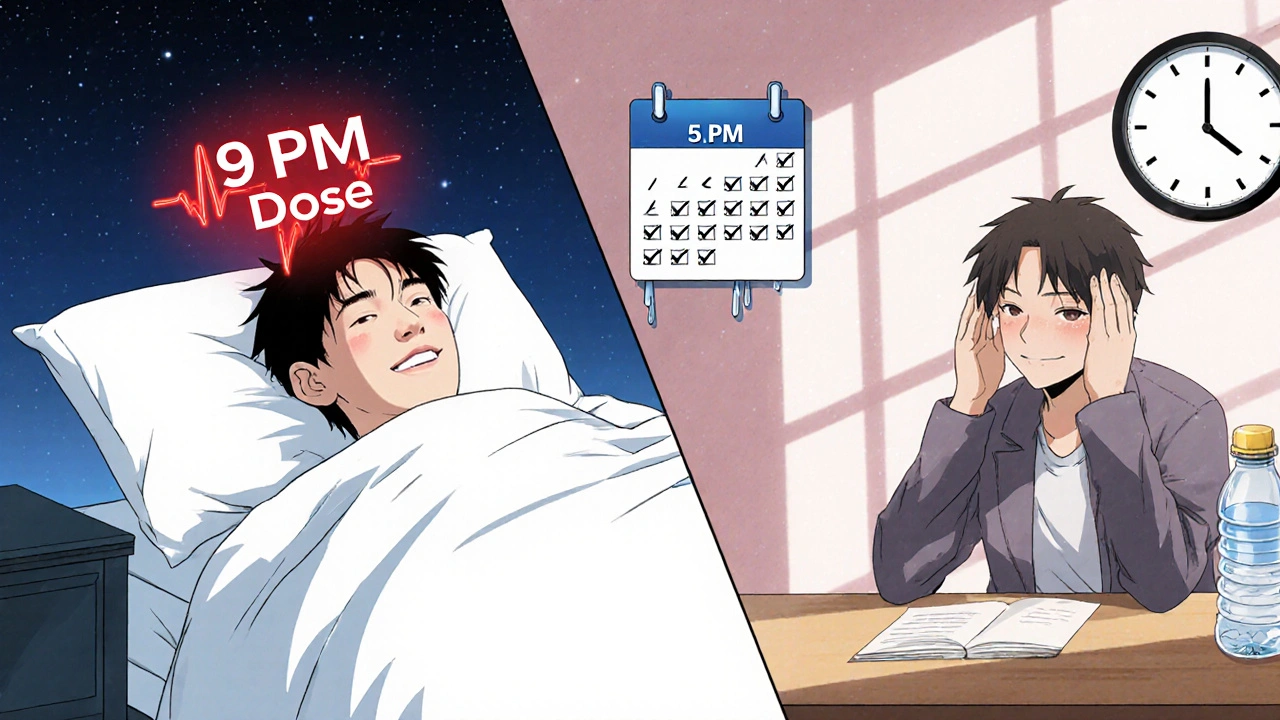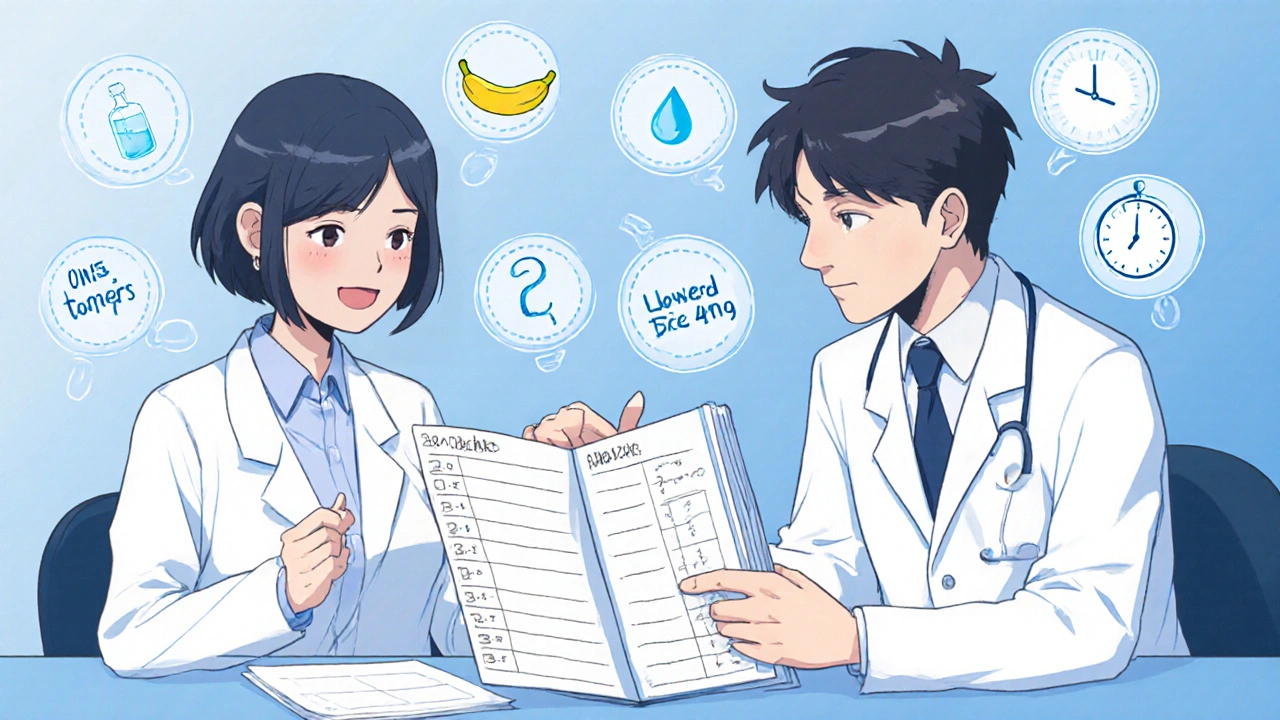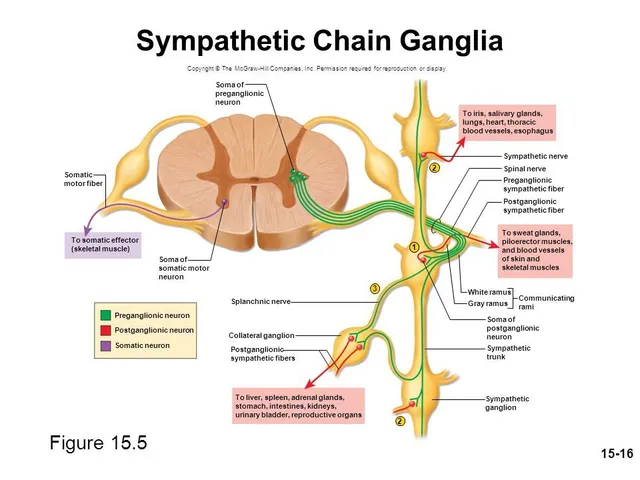Many people take tizanidine to ease muscle spasms from conditions like multiple sclerosis or back injuries. But if you’ve started this medication and now get frequent headaches, you’re not alone. Tizanidine is known to cause headaches in up to 15% of users, according to clinical trial data from the U.S. National Library of Medicine. It’s not the drug working wrong-it’s just how your body reacts. The good news? Most of these headaches are mild and can be managed without stopping the medication.
Why Does Tizanidine Cause Headaches?
Tizanidine works by calming overactive nerves in your spinal cord, which reduces muscle tightness. But it also affects receptors in your brainstem that control blood vessel tone. When these receptors get suppressed, blood vessels in your head can dilate slightly, triggering what feels like a tension-type headache. It’s not a migraine, but it can feel just as annoying-especially if it hits right after you take your dose.
Some people notice headaches within 30 to 60 minutes after taking tizanidine. Others get them later, even hours after. That’s because the drug’s effects peak around 1-2 hours after ingestion and can last up to 6 hours. If your headache lines up with that window, it’s likely tied to the medication.
When to Be Concerned
Not every headache from tizanidine needs medical attention. But there are warning signs that mean you should call your doctor:
- Headache that’s suddenly worse than ever before
- Headache with vision changes, confusion, or slurred speech
- Headache that doesn’t improve with rest or over-the-counter pain relievers
- Headache along with a stiff neck, fever, or nausea
These could point to something unrelated-like high blood pressure, a sinus infection, or even a rare reaction. Tizanidine itself rarely causes serious neurological side effects, but it’s always better to rule out other causes.
Simple Ways to Reduce Headaches
Before you think about switching meds, try these four low-risk strategies that have helped many people on tizanidine:
- Take it with food - Tizanidine is absorbed faster on an empty stomach, which can spike its effects and make headaches worse. Eating a light snack-like crackers or yogurt-before your dose can smooth out the drug’s impact.
- Stay hydrated - Dehydration makes headaches worse. Drink at least 2 liters of water daily, especially if you’re active or in hot weather. Avoid alcohol and excessive caffeine, both of which can trigger or worsen headaches.
- Don’t lie down right after taking it - Tizanidine can lower blood pressure. Lying down too soon after taking it might cause a drop in circulation to your head. Sit or stand for at least 20 minutes after your dose.
- Adjust your timing - If you take tizanidine at night and wake up with a headache, try moving your dose to earlier in the day. Some people find headaches fade when they take it before noon instead of at bedtime.

What About Pain Relievers?
You can take acetaminophen (Tylenol) for tizanidine-related headaches. It’s generally safe and doesn’t interact badly with the drug. Avoid NSAIDs like ibuprofen or naproxen if you’re also taking other medications for nerve pain or blood pressure-they can increase your risk of stomach issues or kidney strain.
Don’t take more than 3,000 mg of acetaminophen in a day. That’s about six regular-strength pills. If you’re using other products that contain acetaminophen-like cold medicines or sleep aids-check the labels. Overdosing on it can damage your liver.
What If Headaches Keep Happening?
If you’ve tried all the tips above and headaches are still happening daily or disrupting your sleep, work with your doctor. They might:
- Lower your dose-tizanidine is often started at 2 mg, but some people do fine on 1 mg three times a day.
- Switch you to a different muscle relaxant like baclofen or cyclobenzaprine, which are less likely to cause headaches.
- Add a low-dose tricyclic antidepressant like amitriptyline, which can help with both muscle tension and headache prevention.
Don’t stop tizanidine suddenly. It can cause rebound muscle spasms, high blood pressure, or even hallucinations. Always taper under medical supervision.
Real-Life Example: How Sarah Managed Her Headaches
Sarah, 52, from Melbourne, started tizanidine after a herniated disc caused constant back spasms. Within three days, she had daily headaches that made her miss work. She tried drinking more water and eating before her dose. No change. Then she moved her last dose from 9 p.m. to 5 p.m. Within a week, her headaches dropped from five days a week to just one. She still takes tizanidine, but now she sleeps through the night.
Her doctor also cut her dose from 4 mg to 2 mg three times a day. That small change made a big difference. She now keeps a simple log: time of dose, headache severity (1-10), and what she ate. That helped her doctor fine-tune her plan.

What Doesn’t Work
Some people try herbal remedies like feverfew or magnesium supplements to fight tizanidine headaches. There’s no strong evidence they help in this specific case. Magnesium might help with migraines, but tizanidine headaches are different. Same goes for essential oils or acupuncture-these might feel good, but they won’t fix the root cause.
Also, don’t increase your dose hoping the headache will go away. More tizanidine doesn’t mean fewer headaches-it usually makes them worse.
Long-Term Outlook
For many people, headaches from tizanidine fade after a few weeks as the body adjusts. One study published in the Journal of Neurology found that 68% of patients reported improvement in headaches within four weeks of starting the drug, even without changing their dose.
If headaches persist past six weeks, it’s less likely they’re caused by tizanidine alone. At that point, your doctor may look for other triggers: poor sleep, stress, eye strain, or even jaw clenching. Sometimes, the real problem isn’t the medication-it’s what’s happening alongside it.
Remember: tizanidine works well for muscle spasms. For many, the benefits outweigh the headaches. With small tweaks, most people can keep using it safely.
Can tizanidine cause chronic headaches?
Tizanidine doesn’t typically cause chronic headaches. Most headaches linked to it are short-term and happen right after taking the dose. If you’ve had daily headaches for more than six weeks, it’s more likely another factor is involved-like stress, sleep issues, or another medication. Talk to your doctor to rule out other causes.
Is it safe to take ibuprofen with tizanidine for headache relief?
It’s usually okay to take ibuprofen with tizanidine occasionally, but it’s not the first choice. Both can affect your kidneys and stomach lining, especially if you’re older or take other meds like blood pressure pills. Acetaminophen is safer for most people. Always check with your pharmacist or doctor if you’re on multiple medications.
Will switching to a different muscle relaxant stop my headaches?
Possibly. Drugs like baclofen or cyclobenzaprine are less likely to cause headaches than tizanidine. But they come with their own side effects-drowsiness, dry mouth, dizziness. Your doctor will consider your full health picture before switching. Sometimes, lowering the tizanidine dose works just as well.
Can I take tizanidine if I already get migraines?
Yes, but with caution. Tizanidine can sometimes trigger migraine-like symptoms in people prone to them. If you have a history of migraines, tell your doctor before starting. They may recommend a preventive treatment like topiramate or a beta-blocker alongside tizanidine to reduce the risk.
How long does it take for tizanidine headaches to go away?
For most people, headaches improve within 1 to 4 weeks as the body adjusts to the drug. If you’re taking it consistently and following hydration and dosing tips, you should notice a drop in frequency and intensity. If they don’t improve after six weeks, it’s time to revisit your treatment plan with your doctor.
Next Steps: What to Do Today
Don’t wait for headaches to get worse. Start today:
- Drink an extra glass of water with your next tizanidine dose.
- Eat a small snack-like a banana or a handful of nuts-before taking it.
- Write down when your headaches happen: before or after your dose? How long do they last?
- Call your doctor if headaches are severe, frequent, or paired with other symptoms.
Managing side effects isn’t about quitting medication-it’s about working smarter with it. You don’t have to live with daily headaches just because you’re on tizanidine. Small changes, tracked over time, can make a real difference.






giri pranata
October 27, 2025 AT 18:08Just started tizanidine last week and damn, the headaches hit like a truck. Tried drinking water and eating a banana before bed-nope. Then I moved my last dose to 4 PM instead of 10 PM. Game changer. No more waking up with my skull trying to crack open. 🙌
Stuart Rolland
October 28, 2025 AT 09:11Look, I’ve been on this stuff for over a year now and I’ve tried everything-hydration, timing, snacks, even lying down for 30 minutes after taking it like it’s some kind of yoga pose. Honestly? The only thing that actually worked was dropping my dose from 4mg to 2mg three times a day. My doctor was skeptical, but my head stopped feeling like it was being slowly squeezed by a python. Tizanidine’s not perfect, but it’s still the best thing I’ve got for my spasms. Don’t give up on it too fast. Small tweaks > big leaps.
Kent Anhari
October 28, 2025 AT 12:21As someone who’s lived in three countries and taken half a dozen muscle relaxants, I can say this: tizanidine’s headache side effect is way more common than people admit. In India, they just tell you to drink more coconut water. In Germany, they prescribe magnesium. Here? They hand you Tylenol and call it a day. The real issue isn’t the drug-it’s how fragmented healthcare is. Find a doc who actually listens. It’s rare, but it exists.
Charlos Thompson
October 29, 2025 AT 08:00Oh wow. So we’re now treating headaches caused by a muscle relaxant like they’re a fucking mindfulness exercise? "Drink water, eat a banana, don’t lie down." Next they’ll tell us to light a candle and chant "I am not a headache" while staring at a lava lamp. This is what happens when pharmaceutical companies hand doctors bullet points instead of training. I’d rather have spasms than this nonsense.
Peter Feldges
October 29, 2025 AT 08:35While I appreciate the clinical rigor of the original post, I must respectfully note that the recommendation to use acetaminophen as a first-line analgesic is not universally applicable. In patients with pre-existing hepatic insufficiency or concurrent alcohol use, even 3,000 mg/day may represent a significant risk factor. Moreover, the assertion that NSAIDs are contraindicated due to "kidney strain" lacks nuance-particularly in the absence of baseline renal function data. A more evidence-based approach would include a discussion of individualized risk stratification, not blanket recommendations.
Richard Kang
October 30, 2025 AT 08:44Okay but like… why does everyone keep saying "drink water" like it’s magic? I drink 3 liters a day and still get these dumb headaches. I think it’s just the damn drug. Also, I tried taking it with food and I threw up. So now I just take it on an empty stomach and pray. 😭
Rohit Nair
October 30, 2025 AT 11:39Same here bro. Took tizanidine for back pain after lifting wrong. Headaches hit hard. Tried everything. Then I just started taking it at 7am instead of 9pm. No more morning fog. Still get a little ache but nothing like before. I’m not a doctor but… maybe try changing the time? It’s free and easy. 🙏
Wendy Stanford
October 31, 2025 AT 01:22It’s not about the headache. It’s about what the headache represents. Tizanidine is a chemical intrusion into the delicate architecture of your nervous system. The headache? It’s your soul screaming. You think hydration fixes that? No. You’re just pouring water into a cracked vessel. The real question isn’t how to manage the symptom-it’s whether you’re willing to keep surrendering your autonomy to pharmaceutical convenience. We’ve normalized suffering as a side effect. And that’s the real tragedy.
Jessica Glass
November 1, 2025 AT 02:42So let me get this straight. You’re telling me the solution to a drug-induced headache is… eating a banana? That’s it? I’m supposed to be grateful for this? Meanwhile, Big Pharma is laughing all the way to the bank while we’re out here Googling "can tizanidine kill you?" at 3 a.m. This isn’t advice. It’s a Band-Aid on a hemorrhage.
Krishna Kranthi
November 1, 2025 AT 10:58Man I been on this for 8 months now. First week? Nightmare. Headache like someone’s drilling in my temple. Then I tried the food thing. Then I tried not lying down. Then I just started taking it after my chai. And guess what? It stopped. Not magic. Just timing. Also… I don’t take Tylenol. Too much sugar in it. Just chill. Wait it out. Your body’s not broken. It’s just learning. 🌿